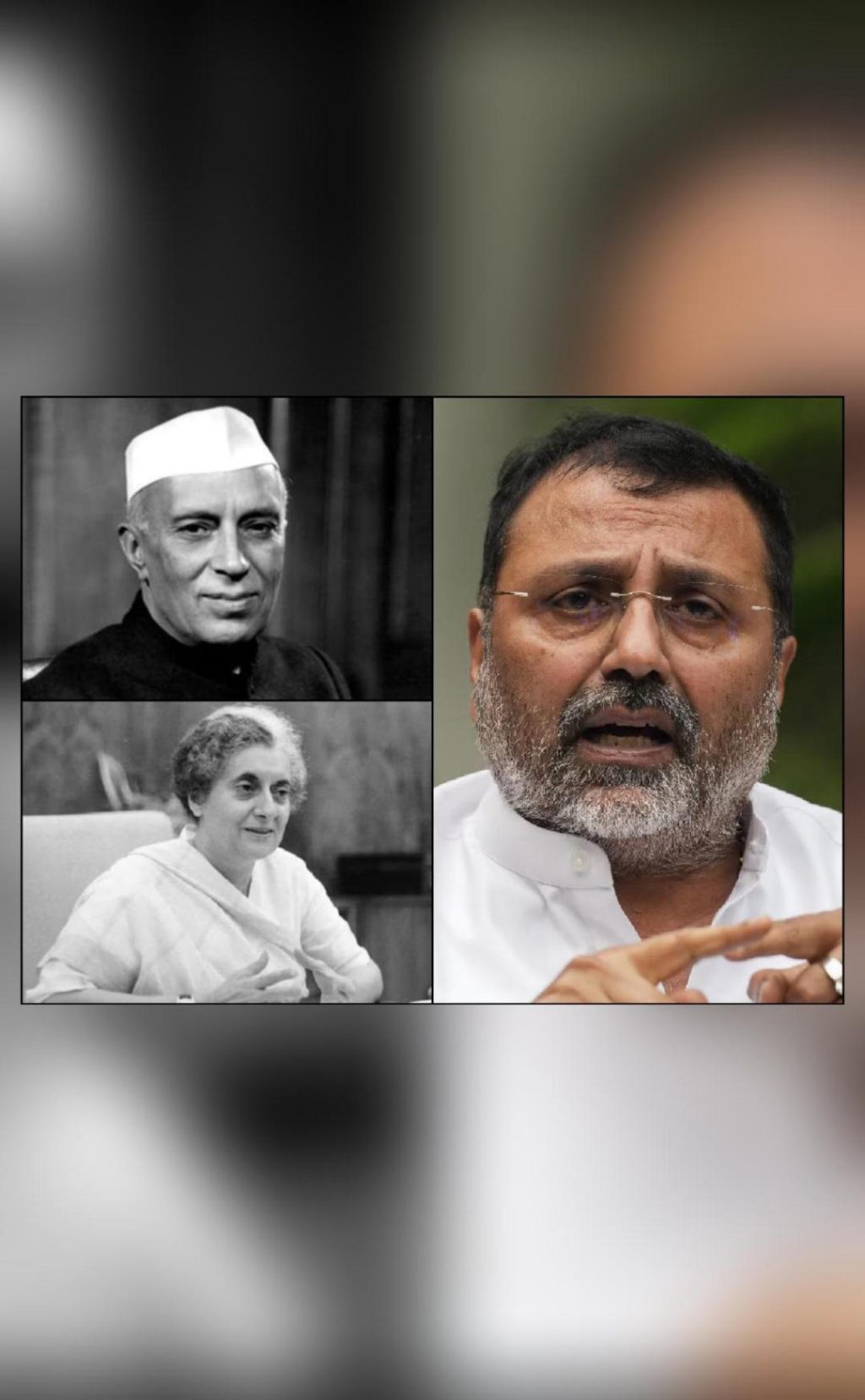
Nehru & Indira drove away Intel from India; it went to China: BJP
In a recent statement, BJP MP Nishikant Dubey has sparked controversy by claiming that the former Prime Ministers Jawaharlal Nehru and Indira Gandhi drove away semiconductor companies like Intel and Fairchild from India, ultimately leading these companies to set up shop in China. Dubey’s assertion has sent shockwaves across the country, with many questioning the validity of his claims.
According to a tweet by Dubey, which has gone viral on social media, he stated, “It was because of Intel that Silicon Valley developed in America, where more than half of the jobs are held by Indians.” He went on to accuse Nehru and Indira Gandhi of creating a hostile environment for foreign investors, forcing Intel and Fairchild to leave India and establish themselves in China instead.
While Dubey’s claims may seem sensational, they do raise important questions about the country’s industrial and economic policies during the Nehru and Gandhi eras. It is true that India’s first Prime Minister, Jawaharlal Nehru, was a strong advocate for socialism and self-reliance, and his government did implement policies aimed at promoting domestic industry and reducing dependence on foreign capital.
One of the key policies implemented by Nehru’s government was the Industrial Policy Resolution of 1956, which aimed to promote the growth of heavy industries such as steel, fertilizer, and machine tools. This policy was designed to reduce India’s dependence on foreign imports and create a strong domestic manufacturing sector.
However, the Industrial Policy Resolution also had some unintended consequences. The policy discouraged foreign investment and created a bureaucratic red tape that made it difficult for foreign companies to operate in India. This led many foreign companies, including Intel and Fairchild, to seek more favorable investment opportunities in other countries, including China.
China, under the leadership of Deng Xiaoping, had implemented a series of economic reforms aimed at attracting foreign investment and promoting economic growth. These reforms included the creation of special economic zones, where foreign companies were given tax breaks and other incentives to set up shop. China’s economic reforms were highly successful, and by the 1980s, the country had become one of the fastest-growing economies in the world.
India, on the other hand, continued to struggle with its socialist economic policies, which had created a highly bureaucratic and inefficient economy. It wasn’t until the economic liberalization reforms implemented by Prime Minister Rajiv Gandhi in the 1980s that India began to open up to foreign investment and allow the private sector to play a more significant role in the economy.
In recent years, India has made significant strides in terms of economic growth and industrial development. The country has become a major hub for IT and software development, and has also attracted significant foreign investment in sectors such as manufacturing and infrastructure.
However, the question remains whether Dubey’s claims about Nehru and Indira Gandhi driving away Intel and Fairchild from India are accurate. While it is true that the Industrial Policy Resolution of 1956 did discourage foreign investment, it is also important to note that the policy was designed to promote domestic industry and reduce dependence on foreign capital.
Furthermore, it is unclear whether Nehru and Indira Gandhi were directly responsible for driving away Intel and Fairchild from India. While both leaders did implement policies aimed at promoting domestic industry, it is possible that other factors, such as the lack of infrastructure and skilled labor, may have also played a role in the departure of these companies.
In conclusion, while Dubey’s claims about Nehru and Indira Gandhi driving away Intel and Fairchild from India may be sensational, they do highlight the importance of considering the historical context of India’s economic policies. The country’s early years of independence were marked by a strong focus on socialism and self-reliance, which had both positive and negative consequences.
As India continues to evolve and grow as a major economic power, it is essential to learn from its past and adapt to changing circumstances. While the country may have taken a wrong turn in the past, it is now well-positioned to capitalize on its growing economy and technological advancements.
Source: https://x.com/nishikant_dubey/status/1956538914207883396






